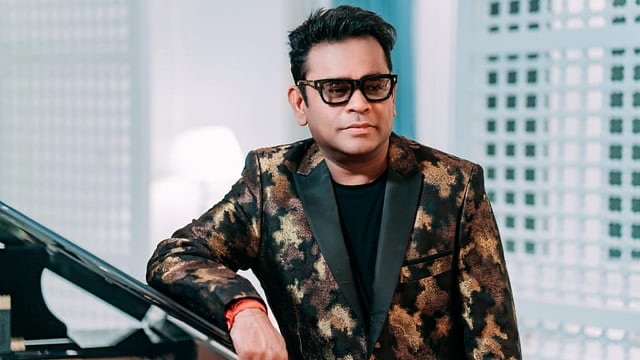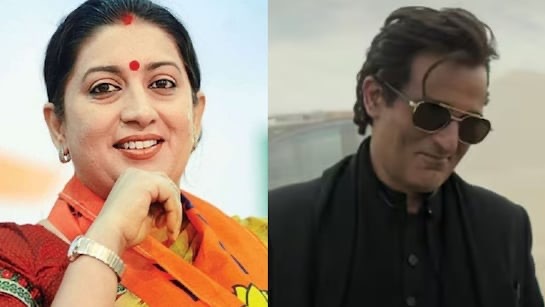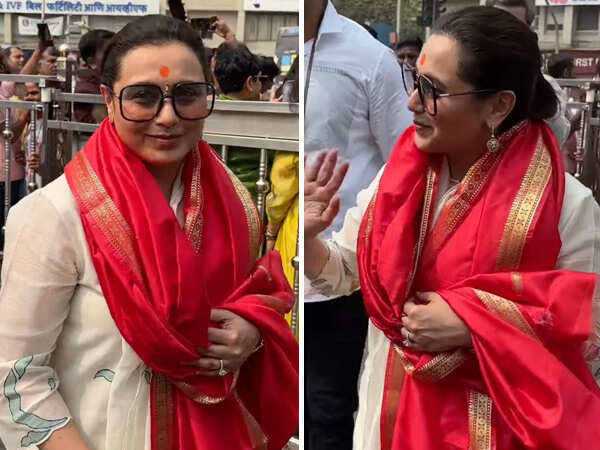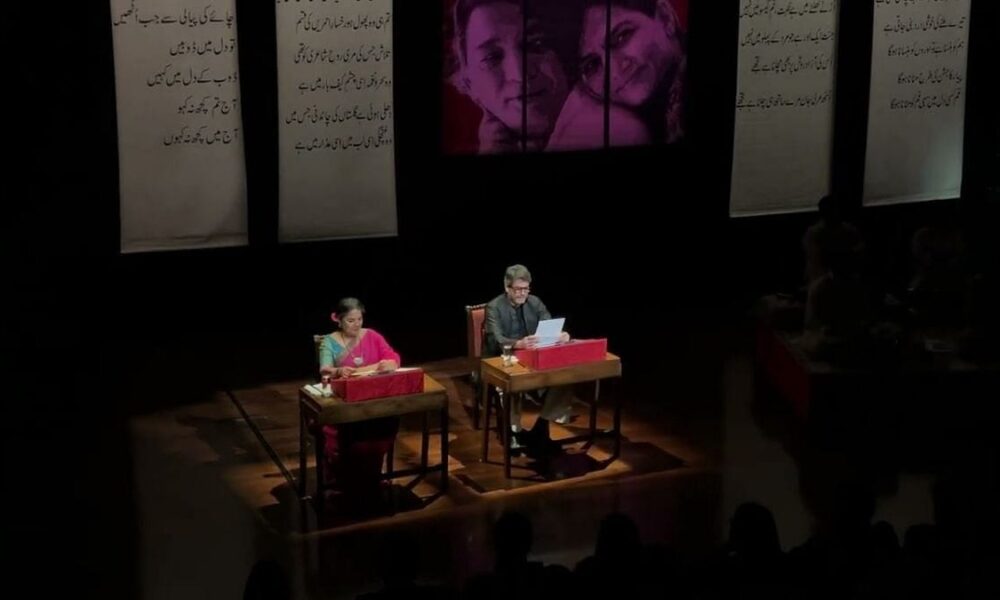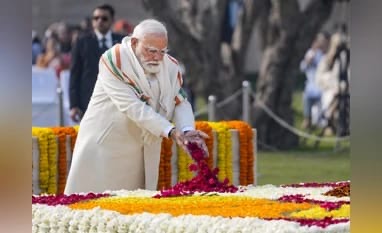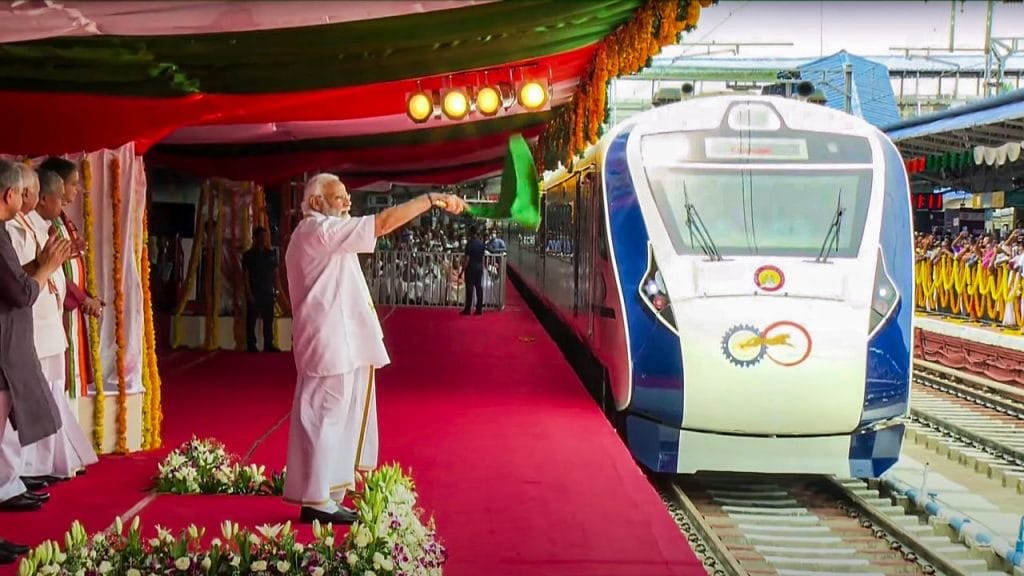Shabana Azmi to Naseeruddin Shah who breathed life into Delhi’s theatre scene
For Delhi’s Theatre Enthusiasts, events such as the Delhi Theatre Festival, Mahindra Excellence in Theatre Awards, and Bharat Rang Mahotsav are nothing short of cultural celebrations.
Shabana Azmi and Kanwaljit Singh reprised their role of Shaukat Kaifi and Kaifi Azmi for Delhi’s audience at Siri Fort Auditorium
Last weekend Shabana Azmi, Naseeruddin Shah, Piyush Mishra, and Pankaj Kapur to the stage to breathe life back into Delhi’s failing theatre-going culture.
The Delhi theatre scene in the past decade has been beset with an groundbreaking crisis of content, cash, and cultural patronage. Even as viewing cultures moved online, even pandemic fatigue could not force people to return to the physical entertainment space.
Theatre veteran MK Raina, reflecting on Delhi’s theatre culture, revealed that
Theatre, an art form that embodies all other creative pursuits like music, dance, painting, etc., is meant to evoke dialogue, which, in the last few years, has subsided.
The keenly-awaited Delhi Theatre Festival made a euphoric return to the capital after a three-year hiatus. Long queues, traffic jams around the Siri Fort Auditorium, surging demand for cab rides, and passionate discussions reflected Delhiites’ enduring love for the dramatic arts.
With Ismat Apa Ke Naam, the three Shahs-Naseeruddin, Heeba, and Ratna Pathak breathed life into the world of Ismat Chughtai, a trailblazer in Urdu literature whose work often highlighted uncomfortable subjects, particularly concerning women, at a time when the world shirked from acknowledging them. Dopehri, another poignant story of loneliness and hope penned and performed by Pankaj Kapur, illustrated the prejudice of society, which often dictates how a woman must lead her life.
In Kaifi Aur Main, Shabana Azmi displayed the blossoming of romance amid revolution by narrating her parents’ 55-year journey of togetherness.
Pankaj Kapur presented a theatrical reading of his novel-turned-play ‘Dopehri’ Siri Fort Auditorium.
An unconventional lineup
Ismat Apa Ke Naam has travelled to several cities and countries over the years. It remains Naseeruddin’s favourite play (in which he has had the opportunity to collaborate with his wife, Ratna Pathak).
Naseeruddin had once said about Chughtai that he is from the same milieu as she was.
Based on three of Chughtai’s greatest stories – Mughal Bachha, Chhui Mui and Gharwali –the unique play, performed one by one by Ratna Pathak, Heeba, and Naseeruddin over 120-minutes, highlighted Chughtai’s observations around dysfunctional marriages, women’s bodies, desire, and more.
Ismat Aapa Ke Naam returned to the stage since Naseeruddin wanted to break out of the “elitist” image that his “English theatre company” Motley had unknowingly built over two decades. A walk into a bookstore introduced him to Chughtai’s short stories, and then there was no looking back.
Chughtai’s women of fiction resonate with the real women of today because the issues they dealt with — like the taboo around miscarriage, patriarchy, and class divide — have travelled to the modern age.
While the festival started with Ismat Apa ke Naam, it ended on a thunderous note with a musical performance by Piyush Mishra’s band, Ballimaaran.
Simple, rich, and filled with pure wisdom, Kaifi Aur Main is a theatrical recitation of the letters, interviews, and writings of progressive poet and Bollywood lyricist Kaifi Azmi.
Based on excerpts from Kaifi’s wife Shaukat Kaifi’s memoir Yaad ki Rahguzar, the play was written by Javed Akhtar. Kanwaljit Singh read Kaifi’s lines, while Shabana read her mother Shaukat’s part. Their dialogues were accompanied by Jaswinder Singh’s musical transitions. From Waqt Ne Kiya Kya Haseen Sitam (1959) to Tum Itna Jo Muskura Rahe Ho (1982), he sang the ace lyricist’s classic compositions after every 10 minutes or so.
In a stage setting reminiscent of the 1990s hit Tumhari Amrita featuring Farooque Sheikh and Shabana, the play was an austere ode to the spoken word. It richly evoked nostalgia and chronicled the birth of the Indian People’s Theatre Association (IPTA) movement, the Communist Communes, and the golden era of Bollywood poetry.
“Writing lyrics for films is like digging a pit first and then finding a corpse which would fit in,” said Kanwaljit while reading Kaifi’s lines about his tryst with musicians in the Hindi film industry.
But neither the music, Siri Fort Auditorium’s audio system, nor Kanwaljit’s dialogue delivery could keep pace with Shabana’s stellar acting and rendition.
“Uth meri jaan mere saath hi chalna hai tujhe, qalb-e-mahoul mein larzaan sharar-e-jang hain aaj…,” said Shabana while reading aloud a portion from Aurat, an Urdu verse that Kaifi had dedicated to Shaukat.
After an evening of ghazals and nostalgia, Pankaj Kapur enchanted the audience with his theatrical reading of Dopehri.
News Edit K.V.Raman



